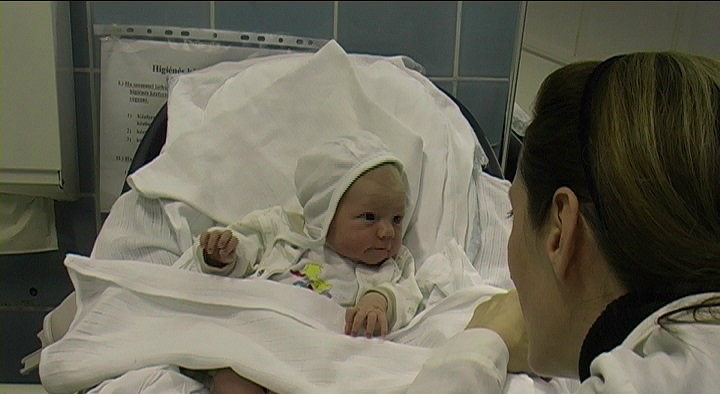Why "Connections matter" – from conception onwards and in a digital world
Published On Thu 19 Oct 2017 by Roddy Isles

The connections we make from conception through our life spans, in a digital world and through disabilities and communication disorders, will be explored at an international gathering of researchers at the University of Dundee tomorrow.
The `Connections Matter’ workshop gathers leading experts from across the fields of foetal, neonatal and infant psychology, autism and communication disorders, and intelligent computing.
They will investigate how we connect with other human beings from conception through our lifespans. Presenters will discuss how the inherent ‘poetry and kindness’ of our deepest humanity is shared even without words, both in infancy and in the case of people with disabilities and communication disorders.
“Even before we are born we are making connections with other humans,” said Dr Emese Nagy, Reader in Psychology in the School of Social Sciences at the University of Dundee and organiser of the workshop.
“There has been a broad range of exciting research recently, including contributions from researchers here in Dundee, across different disciplines looking at how these connections are formed and why they matter.
“This event brings these researchers together to explore some of the big issues, including how our digital world shapes development in infancy to how technology is helping people with severe communication difficulties.”
International expert Professor Mikael Heimann, from the University of Linköping, Sweden, will talk about his recent project, ‘How the digital world shapes early socio-cognitive development in infancy’ while Jonathan Delafield-Butt and Adam Mitchell from the University of Strathclyde and Tibor Farkas from the University of Dundee will explore experiences of intersubjective connectedness in people with autism.
Professor Annalu Waller from the University of Dundee will discuss intelligent computing in targeting digital interventions for communication disorders, and Adam Mitchell from the University Strathclyde will present his results on developing iPad games to aid the diagnosis of autism spectrum disorders.
A remarkably strong group of developmental psychology researchers represent the School of Social Sciences at the University of Dundee at the event. Viola Marx will discuss foetal behavioural responses to maternal voice and touch; Emese Nagy will make the case for the emergence of a new subdiscipline of perinatal psychology; and Yaroslava Goncharova will talk about the emergence of the self in infancy. Tibor Farkas will present evidence for a social-motivational theory of autism.
Professor Colwyn Trevarthen from the University of Edinburgh will discuss how the inherent ‘poetry and kindness’ of our deepest humanity is shared even without words, both in infancy and in the case of people with disabilities and communication disorders, while Suzanne Zeedyk, the founder of the organisation Connected Baby, will explore how research on ‘connections’ can be implemented in the real world.
The workshop will close with a general discussion, including audience involvement, on why research on connections really matters, how such research paves the way toward a better future, and how it can change practices, policies and effectively engage the general public.
`Connections Matter’ takes place in the Scrymgeour Building, School of Social Sciences, University of Dundee from 10am to 2.30pm on Friday 20 October.
For media enquiries contact:
Roddy Isles
Head of Corporate Communications
University of Dundee
Nethergate, Dundee, DD1 4HN
Tel: +44 (0)1382 384910
Mobile: 07800 581902
Email: r.isles@dundee.ac.uk